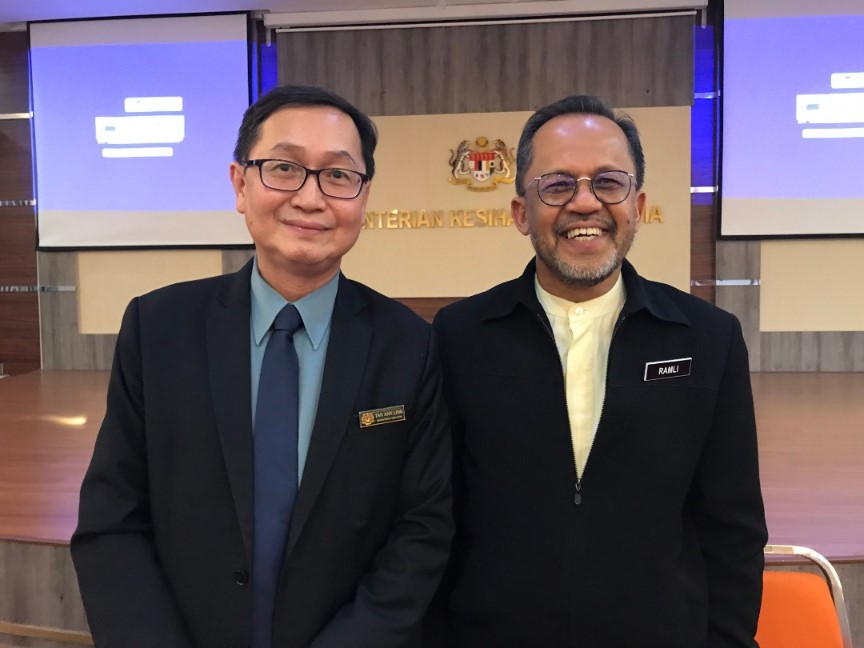PETALING JAYA, Jan 21 — A proposed legal amendment to criminalise physicians for not issuing drug prescriptions requested by patients will not lead to dispensing separation, a health official said today.
Dispensing separation means separating the prescribing and dispensing of medicines to doctors and pharmacists respectively, a common practice in other countries that is not done in Malaysia as many doctors still dispense the drugs they prescribe.
“If you look at the amendment, you cannot find the word ‘dispensing separation'”, Dr Ramli Zainal, senior director of the Ministry of Health’s (MOH) Pharmaceutical Services Programme said, referring to the Poisons (Amendment) 2019 Bill that was tabled for first reading in the Dewan Rakyat last year.
Speaking at a media engagement session at the National Pharmaceutical Regulatory Agency’s headquarters here, Dr Ramli said it was “a hypothetical question” to put to the ministry.
“It’s very difficult to answer such a question,” he added, but said dispensing separation was not one of the main objectives for amending the Poisons Act 1952.
Dr Ramli also spoke of a previous town hall session that Health Minister Dzulkefly Ahmad attended, where he purportedly told the Malaysian Medical Association that the issue of dispensing separation will “resolve by itself” with a health care financing system in place.
“If we look at other countries that practice national health financing…they don’t talk about dispensing separation because there will come a time when doctors will just prescribe (medicines) and dispensing is done by pharmacies or clinics.”
Dr Ramli Zainal, senior director of the Ministry of Health’s Pharmaceutical Services Programme
MOH came under fire from several physician groups and lawmakers last year for proposed amendments to the Poisons Act that would make it mandatory for doctors, dentists, and veterinarians to provide prescriptions upon request from patients. Failure to do so would see them guilty of an offence that is punishable by a maximum RM50,000 fine, up to five years’ imprisonment, or both.
The Medical Practitioners Coalition Association of Malaysia previously alleged that the amendment Bill was a “backdoor entry” for dispensing separation, making reference to an attempt to raise a Bill on dispensing separation by the previous Barisan Nasional administration in 2015, but which was halted because of opposition from doctors’ groups.
Deputy Health Minister Dr Lee Boon Chye last November tabled an amendment to the Poisons Act 1952 in the Dewan Rakyat, but after intense public outcry, the second reading for the amendment Bill was pushed to the next Parliament meeting in March.
Consultations with stakeholders to go over provisions in the Bill are slated on February 13, Dr Ramli said today.
On whether MOH will delete sections in the amendment Bill that make it a criminal offence for doctors, dentists, and vets to decline issuing prescriptions upon request, Dr Ramli said to wait for the outcome of the February 13 meeting.
“We’ll have another engagement, and based on the outcome of that engagement, we will make a decision,” he said.
He also said it was incorrect to say that MOH enforcement officers will have excessive powers, referring to a section of the amendment Bill that would give its officers the same powers as the police to search private clinics, hospitals, or other premises, and to seize documents if an offence was suspected. Some doctors had said this would supersede confidentiality provisions in other laws.
“You must remember that we are enforcing the Poisons Act (cutting across) a lot of other sectors, not just involving clinics and doctors; we also have the other end of society that smuggles in illegal products. So we need to have a law that caters for every offence.”
On a provision in the Bill on electronic prescriptions, where they are to be signed with a digital signature and sent to a registered pharmacist as an electronic message, Dr Ramli said it would be beyond the purview of the Poisons Act to create a system to track all these prescriptions.
However, he said MOH will be able to authenticate online prescriptions, especially if they’re coming from “bogus doctors”, so long as the system complies with a Digital Act. He added that the idea was mooted in order to keep with the times.








